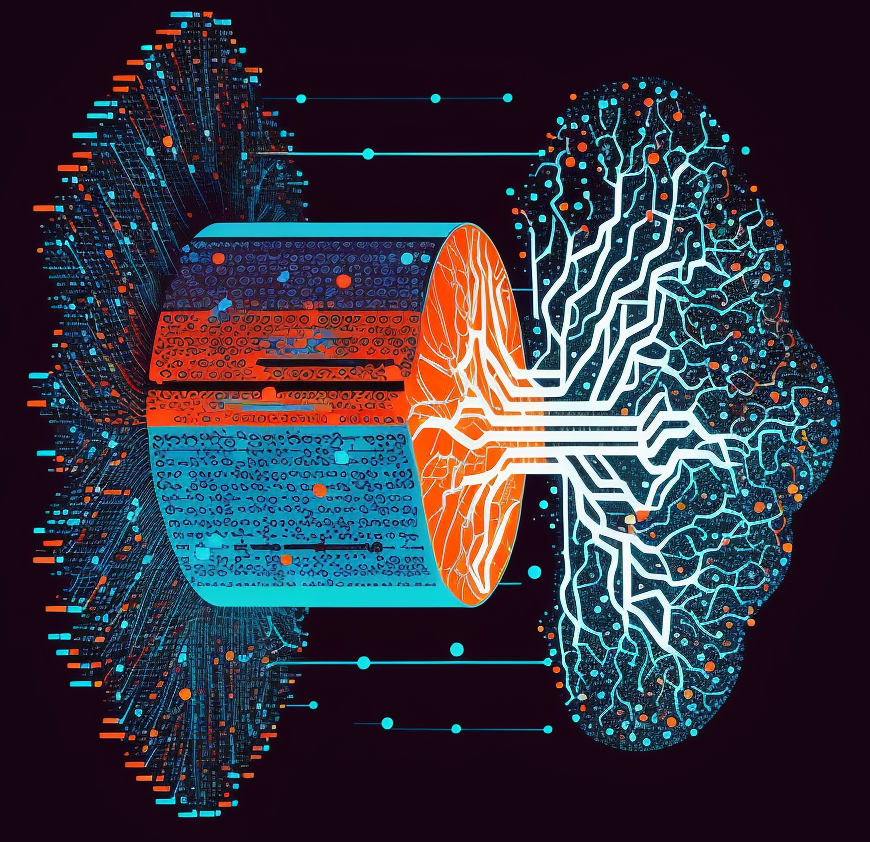Page Not Found
Page not found. Your pixels are in another canvas.
A list of all the posts and pages found on the site. For you robots out there is an XML version available for digesting as well.
Page not found. Your pixels are in another canvas.
This is a page not in th emain menu
Published:
The LLaMA (Large Language Model Meta-AI) model (arxiv:2302.13971), unveiled by Meta AI in February 2023, stands as a remarkable achievement in the realm of large language models, showcasing a capacity for human-like comprehension and text generation.
Published:
An optimizer in the context of machine learning is a crucial component responsible for adjusting the parameters of a model during the training process to minimize the error or loss function.
While machine learning thrives on vast datasets and computational power, human learning operates with flexibility, intuition, and synthesis of knowledge. I have a personal interest in delving into the methodologies of both, emphasizing the adaptability of human cognition and the structured algorithms of machine learning. Ultimately, I’d love to have a deeper understand and envision a future where machine learning enhances human learning experiences, fosters innovation in education, and unlocks new frontiers of human potential.  (Image Source)
(Image Source)
The data-centric approach is intriguing and essential due to its profound impact on the effectiveness and reliability of machine learning models. By prioritizing data quality, preprocessing, and feature engineering, this methodology enhances model performance, interpretability, and scalability. It empowers practitioners to extract meaningful insights, identify relevant patterns, and make informed decisions, driving innovation and solving complex challenges across various domains. Ultimately, the data-centric approach maximizes the potential of machine learning by leveraging high-quality, relevant data to achieve superior results.  (Image Source)
(Image Source)
Published on March 22, 2022
This project utilizes Detectron2 for model retraining, aiming to enhance segmentation accuracy for specific objects, particularly humans, within the CoCo Dataset. It starts with Docker image setup for consistent deployment, filtering relevant categories, and balances instance distribution to optimize dataset for retraining, followed by semantic segmentation model retraining, culminating in the evaluation of the retooled model’s efficacy in image and video inference tasks.
Published on April 03, 2022
This project introduces an open-source package that streamlines the conversion of depth map images recorded by a stage system into 3D point clouds, leveraging tools like Open3D, segmentation techniques, and integration with SMPL models for human motion capture and character animation applications.
Published on February 06, 2024
The Tiny Story Generator project is an exciting development in the field of natural language processing. By fine-tuning a small language model on short stories, the project demonstrates the possibility of generating high-quality narratives using machine learning techniques. The project’s use of the PEFT technique and its focus on short stories make it a unique and innovative approach to language generation. The project’s code and data are publicly available, making it an excellent resource for researchers and enthusiasts interested in natural language processing and machine learning.
Published on April 22, 2024
This project facilitates local document parsing and question answering using large language models (LLMs), encompassing document parsing, text chunking, vectorization, prompting, and LLM-based question answering, all orchestrated through a streamlined process and Dockerized environment, offering benefits in privacy, cost efficiency, educational value, customization, and scalability, with potential use cases spanning various domains such as enterprises, research institutions, legal firms, and educational settings, leveraging tools like Docker, Unstructured, FAISS, Langchain, and Llama.cpp for seamless setup and operation.
Published:
This is a description of your talk, which is a markdown files that can be all markdown-ified like any other post. Yay markdown!
Published:
This is a description of your conference proceedings talk, note the different field in type. You can put anything in this field.
Short description of portfolio item number 1
Short description of portfolio item number 2 
Undergraduate course, University 1, Department, 2014
This is a description of a teaching experience. You can use markdown like any other post.
Workshop, University 1, Department, 2015
This is a description of a teaching experience. You can use markdown like any other post.
Course, Harvard University, Extension School, 2020
I have been working as a teaching staff in Harvard Extension School for the following courses:
, , 2024
This blog is part of the “Deep Learning in Depth” series, where I’ll dive into the world of PyTorch. It aims to provide fundamental concepts and advanced techniques of PyTorch through coding examples.
, , 2024